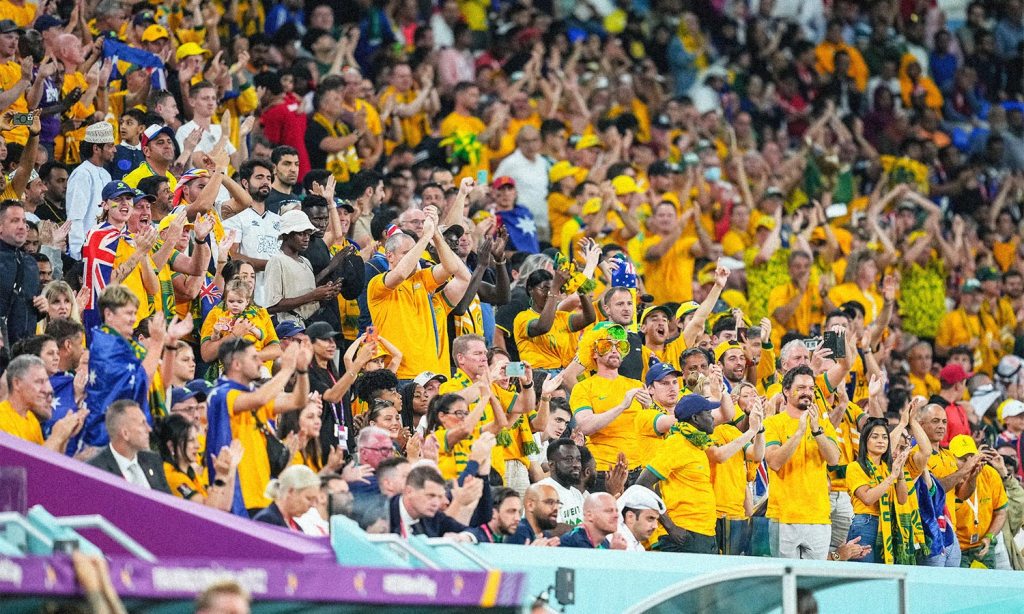When Qatar made the snap decision to ban alcohol from FIFA World Cup stadiums just two days before the start of the games, there was widespread indignation from many of the fans who had travelled thousands of kilometres to be there.
Beer and football go together like… well, nothing else really. But for a country with strict religious laws and an almost complete ban on the sale of alcohol, it was always going to be a point of contention.
FIFA, for its part, petitioned Brazil so hard on the subject when they were World Cup hosts in 2014 that the country reversed a ban on alcohol in stadiums that had been put in place to limit violence at sporting events.
“Alcoholic drinks are part of the FIFA World Cup, so we’re going to have them,” then-FIFA secretary general Jerome Valcke said in 2012. “Excuse me if I sound a bit arrogant but that’s something we won’t negotiate.”
Well, turns out they will negotiate it and, although some are disappointed, others have reported the benefits far outweigh the negatives.
Women, in particular, are feeling the positive effects that a dry World Cup has. One British fan, Ellie Molloson, who runes the HerGameToo campaign aimed at tackling sexism in sport, told The Times that it’s an entirely different atmosphere in Qatar.
“I’ve got to say coming here has been a real shock to my system,” the 19-year-old said. “There have been no catcalls, wolf whistles or sexism of any kind.”
“I had all these preconceived notions about what I would encounter. The reality has been nothing like that. I’ve not experienced any of the harassment I have experienced in England”.
She’s not the only one, as The Times reports multiple female fans feeling the same. It’s given the Brits pause for thought as a 36-year-old ban on alcohol in football stadiums in the UK is being considered for overturning.
Sporting events, including the World Cup, the AFL, and the Melbourne up, have long been linked to domestic violence. Multiple studies and policing records around the world indicate that reports of domestic violence spike after big events, with one study pinning the effects solely on alcohol and other drug use.
“Really, it is only through excessive consumption of alcohol that football games trigger certain domestic abuse perpetrators,” researchers from the London School of Economics concluded.
Local and international police flown into the World Cup to ensure fans are behaving responsibly have reported a marked difference in atmosphere at the dry games. Non-alcoholic beers are sold in stadiums and alcohol is still permitted in certain ‘fan areas’, at hotels, and in certain bars, but this has decidedly limited the amount of booze fans can consume.
The difference is “obvious,” the head of the UK Football Policing Unit has said.
“Whether it’s with football or the rest of society, it is an indisputable fact that alcohol can have a negative impact on behaviour.”
That hasn’t stopped at least one fan from trying to sneak a drink into the games. A man from Mexico was searched by Qatari police upon entering the stadium and was found to be carrying liquor hidden in a pair of binoculars. The binoculars were confiscated.
Qatari security confiscates binoculars a fan used to hide an alcoholic drink in. https://t.co/btLUYz4F8T
— FT90Extra (@FT90Extra) November 23, 2022
Sonia Nemmas, a Jordanian mother of three, told Al Jazeera that she was wary of bringing her three, football-mad daughters to the games where drunken fans might be in attendance and said she was thankful for the ban.
“When we go to other countries, we don’t ask them why we are being asked to follow their rules or respect their culture,” she said.
One of the World Cup’s biggest sponsors, Budweiser, spent around $113 million on a deal with FIFA and their branding is all over the games. When the ban was announced, the company tweeted “well, this is awkward…” in a post that was later deleted.
The company then followed this up with a picture of a warehouse full of beer claiming that the country who wins the World Cup will be gifted all the beer they couldn’t sell. Some fans responded that this was a good incentive for their teams to take a dive in order to avoid having to drink the beverage.
New Day, New Tweet. Winning Country gets the Buds. Who will get them? pic.twitter.com/Vv2YFxIZa1
— Budweiser (@Budweiser) November 19, 2022
As preparations for the 2026 World Cup in North America are already well underway, police teams have been meeting with representatives from America, Mexico, and Canada in Qatar. The ban on alcohol is something that they will no doubt be considering for future tournaments.
Related: Not Just a Game: How the FIFA World Cup Is Influencing Global Politics
Related: Football’s Coming Out: How the FIFA World Cup Could Impact LGBTQI+ Rights in Qatar
Read more stories from The Latch and subscribe to our email newsletter.







